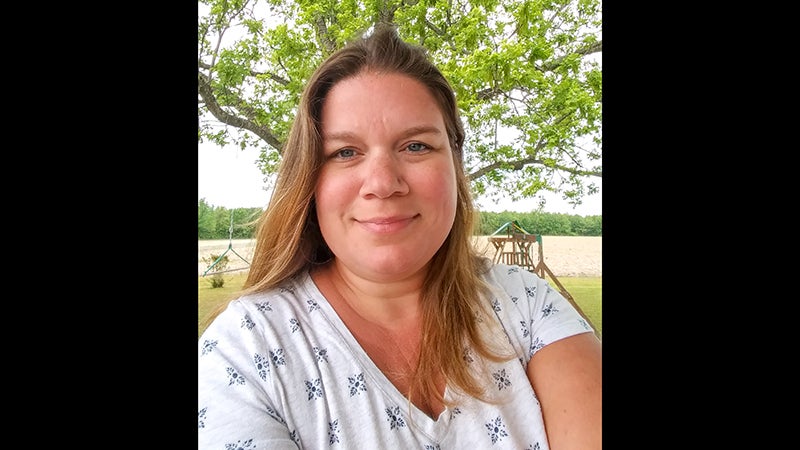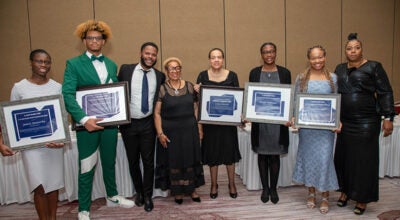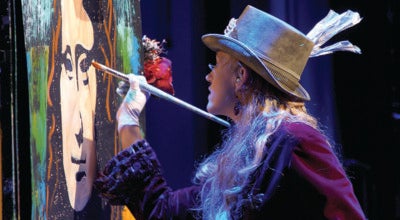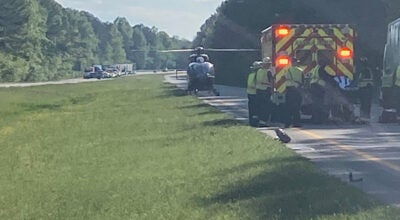‘I want them to know they’re loved’
Published 10:04 pm Tuesday, July 7, 2020

- Criner
|
Getting your Trinity Audio player ready...
|
Fulfilling choice for SPS high school teacher of year
Sharon Criner left a research laboratory setting at Virginia Tech to teach chemistry.
For Suffolk Public Schools, King’s Fork High School and Criner, it was a great choice.
Criner, who has taught IB Chemistry for the past eight years, was named the SPS high school teacher of the year.
“I loved it, but it wasn’t really all that fulfilling,” Criner said of her lab work. “When my son was born, my husband and I talked about it, and we decided it’s now or never, while the kids were young, so I went ahead. They had an opening at King’s Fork High School. I thought, ‘Hey, I want to go home.’”
And home has been a good place for Criner.
She uses her experience to help make chemistry less intimidating to students, incorporating a lot of lab work and trying to focus on what’s best for a student’s learning, rather than how she teaches it.
“Chemistry can be a little bit of a scary subject,” said Criner, who has also taught Advanced Placement and Honors Chemistry. “It just incites fear into the hearts of children, so I try to approach it from that point of view. It’s doable, it’s achievable and it’s a good time, so I really like to have a lot of fun in the classroom.”
It was scary for her when she shifted from her work in the lab to the classroom — “I was terrified, quite honestly,” Criner said, laughing — but her students have helped her.
“I’ve grown more comfortable with my subject, I’ve grown more conformable taking risks and reaching out to my students,” Criner said. “I like for them to have a good time, so we’ll go outside and we’ll do problems on the sidewalk. Every day is different in my classroom.”
King’s Fork Principal Derrick Bryant said Criner’s energetic nature makes the subject engaging for her students and piques their interest, which makes her popular with her students as well as fellow staff.
“Her energy is contagious,” Bryant said. “Just how she intrigues students and gets them involved in the content of their classes is crazy. It’s probably one of her best attributes.”
She said her job doesn’t allow her not to be energetic. If she’s bored, she said her students will be, too.
“I always try to be positive with them,” Criner said. “A lot of times, we’re the only positive face they see during the day, so I try to be that person for them, and make it exciting. Even if we’re just adding numbers, I try to make it exciting.”
That includes times when Criner’s classes make a literal stink in the school.
“There’s a lab that I do with my students that involves an acid, and it smells pretty gross,” Criner recalled, laughing. “But when you mix it with alcohol, it turns into a nice smell like mint and flowers. I had two classes running the lab one day and people were convinced the sewer had backed up, it smelled so bad.”
But it hardly bothered Bryant.
“It’s things like that that keeps our kids interested,” Bryant said. “One of the biggest things, especially about high school kids, is just keeping their interest during the course of the school year, and she does an amazing job of doing that just by using some of those past experiences from her in the lab and being able to communicate with the kids exactly how this connects.
“She can talk about how this school work connects to jobs and experiences outside the classroom. And once (she) can make them connect, then you have their interest and then it makes for a good equation.”
With the coronavirus pandemic closing schools in March, Criner said it did not affect her as much as it could have, having built strong relationships with her students, who kept up with her class virtually. Her biggest challenge has been the Zoom calls with spotty internet access from her home in Holland. er
For the fall, Criner, who balanced her virtual teaching with the virtual learning of a daughter in sixth grade and a son in third grade, is learning how to broadcast herself to provide demonstrations for her students. She is also learning how to incorporate more digital components so there’s no inconsistency no matter how learning looks in the fall.
“I like to think that I incorporate technology enough into my lessons now, and it’s not really that challenging for me,” Criner said.
But for all Criner does to enhance learning for her students, Bryant said she is much more than a great teacher.
“She does everything that a teacher is supposed to do in the classroom, but the best thing about Ms. Criner is she’s a much better person than she is a teacher,” Bryant said, “and that’s very, very important in the classroom, because at the end of the day, we’re all people, and you succeed in our profession when you’re sympathetic, you’re empathetic, and you love what you do, and she does all those things, and she’s just a great person.”
Criner said it was challenging for her when in-person learning ended for the year. It wasn’t just the academics. Without being able to see her students in person, it was an emotional loss too.
“The reason I became a senior sponsor is because it’s about the memories that you make in high school,” Criner said. “Nobody remembers what they learned in ninth-grade science, sadly, but they remember their science teacher being nice to them. They remember always having a room to go to just vent or de-stress, and that’s the kind of environment that I want for kids to have, that it was an overall positive experience for them.
“That’s why I do what I do. I want them to know they’re loved.”






